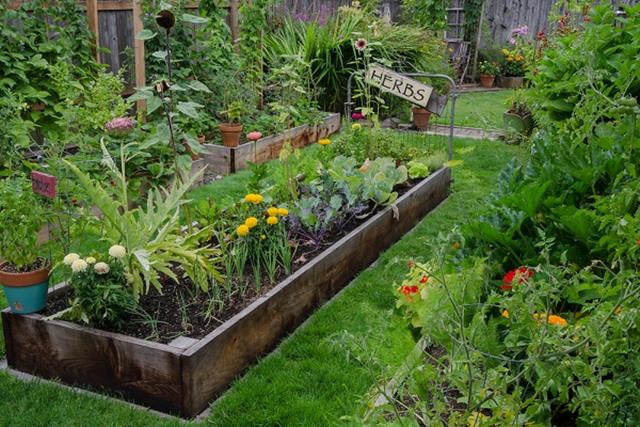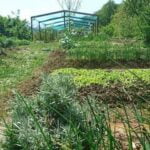Vegetable gardening is not only a popular hobby but also a beneficial activity with numerous advantages. The benefits of vegetable gardening go beyond just having access to fresh produce; it encompasses health, economic, environmental, emotional, and social advantages. Understanding the importance of vegetable gardening can lead to a greater appreciation for this rewarding activity.
One of the key benefits of vegetable gardening is the positive impact it can have on one’s health. By growing your own vegetables, you are ensuring that you have access to fresh, organic produce that is free from harmful chemicals. This can lead to improved nutrition and overall well-being. Additionally, the physical activity involved in gardening can contribute to better fitness levels and increased energy.
In addition to health benefits, vegetable gardening can also provide economic advantages. By growing your own vegetables, you can save money on grocery bills and reduce your reliance on store-bought produce. Additionally, selling or sharing excess vegetables with others can potentially generate income or strengthen community bonds. Overall, understanding the importance of vegetable gardening highlights its value in promoting both personal health and financial well-being.
Health Benefits of Growing Your Own Vegetables
Growing your own vegetables not only provides you with fresh and nutritious produce, but it also offers numerous health benefits. One of the main advantages of vegetable gardening is the ability to control what goes into your food.
By avoiding harmful pesticides and chemicals often used in commercial farming, you can ensure that your vegetables are free from unwanted toxins. This leads to a healthier diet and reduces the risk of ingesting harmful substances that may have negative effects on your health.
In addition to having full control over the quality of your produce, vegetable gardening encourages you to consume a wider variety of vegetables. When you have a garden at your disposal, you are more likely to experiment with different types of plants that you may not typically buy at the store. This diverse range of vegetables introduces new nutrients and vitamins into your diet, ultimately promoting better overall health and well-being.
Furthermore, the physical activity involved in maintaining a vegetable garden contributes to improved fitness levels. From planting seeds to weeding and harvesting, every aspect of gardening involves some form of physical movement. This frequent physical activity can help strengthen muscles, improve flexibility, and boost cardiovascular health. As a result, vegetable gardening not only nourishes your body with wholesome produce but also nurtures your physical fitness for a more active lifestyle.
| Health Benefits | Details |
|---|---|
| Controlled Quality | Avoid harmful pesticides and have toxin-free produce |
| Diverse Diet | Experiment with various vegetables for added nutrients |
| Improved Fitness | Physical activity in gardening enhances muscle strength and cardiovascular health |
Economic Benefits of Vegetable Gardening
When it comes to the economic benefits of vegetable gardening, there are numerous advantages that can be gained from growing your own produce. One of the primary benefits is the significant cost savings that can be achieved by reducing grocery bills.
By cultivating your own vegetables, you can eliminate the need to purchase expensive produce from supermarkets or farmers’ markets, ultimately leading to substantial savings over time. Additionally, engaging in vegetable gardening allows you to have a steady supply of fresh, nutritious food at a fraction of the cost compared to store-bought options.
Furthermore, vegetable gardening can also serve as a means of generating additional income through selling surplus produce. Many avid gardeners choose to sell their excess vegetables at local farmer’s markets, roadside stands, or even directly to neighbors and community members.
Not only does this provide an opportunity to make some extra money, but it also fosters a sense of self-sufficiency and entrepreneurial spirit. In essence, vegetable gardening can be a profitable venture for those looking to supplement their income while enjoying the rewards of working with nature.
Moreover, vegetable gardening has the potential to contribute towards overall household savings by promoting self-sustainability and reducing dependence on store-bought produce. With rising food prices and economic uncertainty, having access to your own homegrown vegetables can act as a form of financial security.
By investing time and effort into cultivating a productive garden, individuals can reap the financial benefits in terms of reduced expenses and increased self-reliance. Ultimately, embracing vegetable gardening not only enriches one’s overall well-being but also presents a practical and economical way to support oneself and one’s family in today’s challenging times.
Environmental Benefits of Sustainable Gardening Practices
Vegetable gardening offers numerous environmental benefits when practiced sustainably. One of the key advantages is the reduction of carbon footprint associated with transporting produce from farms to grocery stores. By growing your own vegetables, you can significantly cut down on the emissions generated by transportation vehicles, thus reducing your overall impact on the environment.
Another significant environmental benefit of sustainable vegetable gardening is the preservation of biodiversity. When you cultivate a variety of vegetables in your garden, you contribute to maintaining a diverse ecosystem that supports different species of beneficial insects, birds, and other wildlife. This biodiversity helps create resilient and balanced ecosystems that are better equipped to withstand environmental challenges such as climate change.
Furthermore, sustainable gardening practices often involve techniques like composting, mulching, and water conservation measures. These methods help improve soil health, reduce waste sent to landfills, and minimize water usage. By nurturing the soil through organic practices and efficiently managing resources, vegetable gardeners play a crucial role in promoting sustainability and environmental stewardship.
| Environmental Benefits | Sustainable Gardening Practices |
|---|---|
| Reduction of carbon footprint | Growing your own vegetables |
| Preservation of biodiversity | Cultivating a variety of vegetables |
| Improving soil health | Composting and mulching |
Emotional and Mental Wellbeing Benefits of Gardening
Stress Reduction
One of the key benefits of vegetable gardening is its ability to reduce stress levels. Engaging in gardening activities such as planting, weeding, and watering can provide a soothing and meditative experience that helps to calm the mind and alleviate stress.
Sense of Accomplishment
Another emotional benefit of vegetable gardening is the sense of accomplishment it brings. Watching your plants grow and flourish through your care and effort can boost self-esteem and confidence. Harvesting your own fresh produce can give you a sense of pride and satisfaction, knowing that you have nurtured something from seed to table.
Connection With Nature
Vegetable gardening allows you to connect with nature on a deeper level, fostering a sense of mindfulness and appreciation for the environment. Spending time outdoors, feeling the soil in your hands, and witnessing the growth cycle of plants can rekindle a sense of wonder and awe. This connection with nature has been shown to improve mental clarity, mood, and overall well-being.
Incorporating vegetable gardening into your routine not only provides you with fresh, organic produce but also offers invaluable emotional and mental health benefits that contribute to a holistic sense of wellness. The act of nurturing plants can be therapeutic, offering moments of tranquility and fulfillment in an increasingly busy world. Take some time each day to tend to your garden, breathe in the fresh air, and enjoy the serenity that comes with growing your own vegetables.
How Vegetable Gardening Can Improve Physical Fitness
Engaging in vegetable gardening not only provides a bountiful harvest of fresh produce but also contributes positively to one’s physical fitness. Here are some ways how vegetable gardening can improve physical fitness:
- Increased Physical Activity: Vegetable gardening requires various physical activities such as digging, planting, weeding, watering, and harvesting. These activities help improve cardiovascular health, muscle strength, flexibility, and endurance.
- Calorie Burn: Spending time in the garden can burn calories without even realizing it. An hour of moderate gardening can burn around 300-400 calories, depending on the intensity of the work involved.
- Improves Mobility and Coordination: Engaging in gardening tasks like bending, kneeling, stretching, and lifting can enhance mobility, balance, and coordination. These movements help strengthen muscles and joints while promoting overall agility.
Aside from the tangible benefits of growing your own food through vegetable gardening mentioned earlier in this article, incorporating physical activity into your routine by tending to your garden can significantly impact your overall well-being. Embracing the outdoor activity of vegetable gardening not only cultivates nutritious foods but also nurtures a healthier lifestyle for individuals looking to enhance their physical fitness levels.
Remember
- Always start slow and pace yourself to prevent injuries or muscle strains.
- Stay hydrated throughout your gardening session to maintain energy levels.
- Incorporate stretching exercises before and after gardening to prevent stiffness or soreness.
Benefits of Fresh, Organic Produce From Your Own Garden
Growing your own vegetables in a garden offers a plethora of benefits, with one of the most rewarding being the access to fresh, organic produce right at your fingertips. By planting and harvesting your own vegetables, you can ensure that your family consumes produce that is free from harmful chemicals and pesticides. This not only contributes to better health for you and your loved ones but also promotes environmental sustainability by reducing the demand for mass-produced, chemically treated foods.
The advantages of enjoying fresh, organic produce from your own garden extend beyond just health benefits. The taste and quality of homegrown vegetables are often superior to store-bought options, as they are picked at peak ripeness and consumed soon after harvest.
This results in vegetables that are richer in flavor, nutrients, and overall freshness. Additionally, cultivating your own organic produce can lead to cost savings in the long run since you will no longer need to purchase as many fruits and vegetables from grocery stores.
Furthermore, growing your own organic produce can also serve as an educational experience for both children and adults alike. It provides a hands-on opportunity to learn about where food comes from, the process of cultivation, and the importance of sustainability in food production. By being actively involved in the growth and care of their own vegetables, individuals can develop a greater appreciation for nature and a deeper understanding of the effort required to bring food from farm to table.
Social Benefits of Community Gardening Projects
Community gardening projects offer numerous social benefits that go beyond just growing vegetables. These projects provide a platform for individuals to come together, work towards a common goal, and build strong relationships within the community.
Building Community Connections
One of the key social benefits of community gardening projects is the opportunity to build connections with neighbors and fellow gardeners. By working alongside others in a shared space, participants can engage in meaningful conversations, share gardening tips, and develop friendships. This sense of community fosters a supportive environment where individuals can learn from one another and feel a sense of belonging.
Promoting Collaboration and Teamwork
Community gardening projects often require teamwork and collaboration to be successful. Gardeners must work together to plan planting schedules, maintain the garden, and harvest crops. This collaboration encourages communication, problem-solving skills, and a sense of unity among participants. By working towards a common goal, individuals learn to appreciate the value of teamwork and cooperation.
Fostering Environmental Stewardship
Engaging in community gardening projects also promotes environmental stewardship within the community. Participants learn about sustainable gardening practices, composting, water conservation, and other eco-friendly techniques that benefit the environment. By collectively caring for the garden space and practicing sustainable methods, individuals develop a deeper appreciation for nature and become more environmentally conscious.
Tips for Getting Started With Vegetable Gardening
Starting a vegetable garden can be a rewarding and fulfilling experience, providing you with a sense of accomplishment as you watch your plants grow and flourish. Whether you have a spacious backyard or just a small balcony, there are many benefits to starting your own vegetable garden. Here are some tips to help you get started:
- Choose the right location: Select a spot that receives at least 6-8 hours of sunlight per day for optimal plant growth.
- Prepare the soil: Test the soil in your chosen location and amend it with organic matter, such as compost or manure, to ensure your plants have the nutrients they need to thrive.
- Select the right vegetables: Consider the climate in your area and choose vegetables that are well-suited to your specific region. Start with easy-to-grow vegetables like tomatoes, peppers, lettuce, and herbs.
Vegetable gardening not only provides you with fresh produce right at your fingertips but also offers numerous other benefits such as:
- Improving physical fitness: Gardening involves physical activities like digging, planting, weeding, and watering, which can help improve muscle strength and flexibility.
- Promoting emotional well-being: Spending time in nature and nurturing plants can reduce stress levels and promote mindfulness, leading to improved mental health.
- Saving money on groceries: Growing your own vegetables can significantly reduce your grocery bill while ensuring that you have access to fresh, organic produce all season long.
By following these tips for getting started with vegetable gardening and reaping the benefits of growing your own food, you can enjoy a healthier lifestyle while cultivating a deeper connection to nature. So put on your gardening gloves, grab some seeds, and start planting your very own vegetable garden today.
Conclusion
In conclusion, the numerous benefits of vegetable gardening extend far beyond just the satisfaction of growing your own food. From promoting physical fitness through manual labor in the garden to reaping the rewards of fresh, organic produce, there is no shortage of reasons to start your own garden. The health benefits of consuming homegrown vegetables are undeniable, as they are free from harmful pesticides and chemicals commonly found in store-bought produce.
Furthermore, engaging in vegetable gardening can also have positive effects on one’s emotional and mental wellbeing. The act of nurturing plants and witnessing their growth can be a therapeutic and fulfilling experience. Additionally, participating in community gardening projects can foster social connections and a sense of belonging within neighborhoods or local communities.
Ultimately, embracing the rewards of vegetable gardening goes beyond just personal gain. By adopting sustainable gardening practices and cultivating one’s own food, individuals can contribute positively to the environment while also reaping the physical, emotional, social, and economic benefits that come with it. So why wait? Get started on your vegetable garden today and experience firsthand the multitude of advantages that come with this rewarding activity.
Frequently Asked Questions
Why Are Vegetable Gardens Important?
Vegetable gardens are important for a variety of reasons. They provide an accessible source of fresh, nutritious produce, which can lead to improved diets and overall health. Additionally, gardening fosters a connection to nature, promotes physical activity, and reduces stress.
What Are the Health Benefits of Vegetable Plants?
Vegetable plants offer numerous health benefits due to their high content of essential vitamins, minerals, and antioxidants. Consuming fresh vegetables can help lower the risk of chronic diseases such as heart disease, diabetes, and certain cancers. Additionally, growing your own vegetables ensures they are free from harmful pesticides and chemicals.
What Are the Benefits of Growing a Backyard Garden?
There are many benefits to growing a backyard garden. Firstly, it allows you to have control over what goes into your food, ensuring that you are consuming safe and healthy produce.
Gardening also provides an opportunity for physical activity and relaxation in the outdoors. Lastly, having a garden can lead to cost savings on groceries and reduce your environmental impact by eating locally grown food.

If you’re looking to get into vegetable gardening, or are just looking for some tips on how to make your current garden better, then you’ve come to the right place! My name is Ethel and I have been gardening for years. In this blog, I’m going to share with you some of my best tips on how to create a successful vegetable garden.





